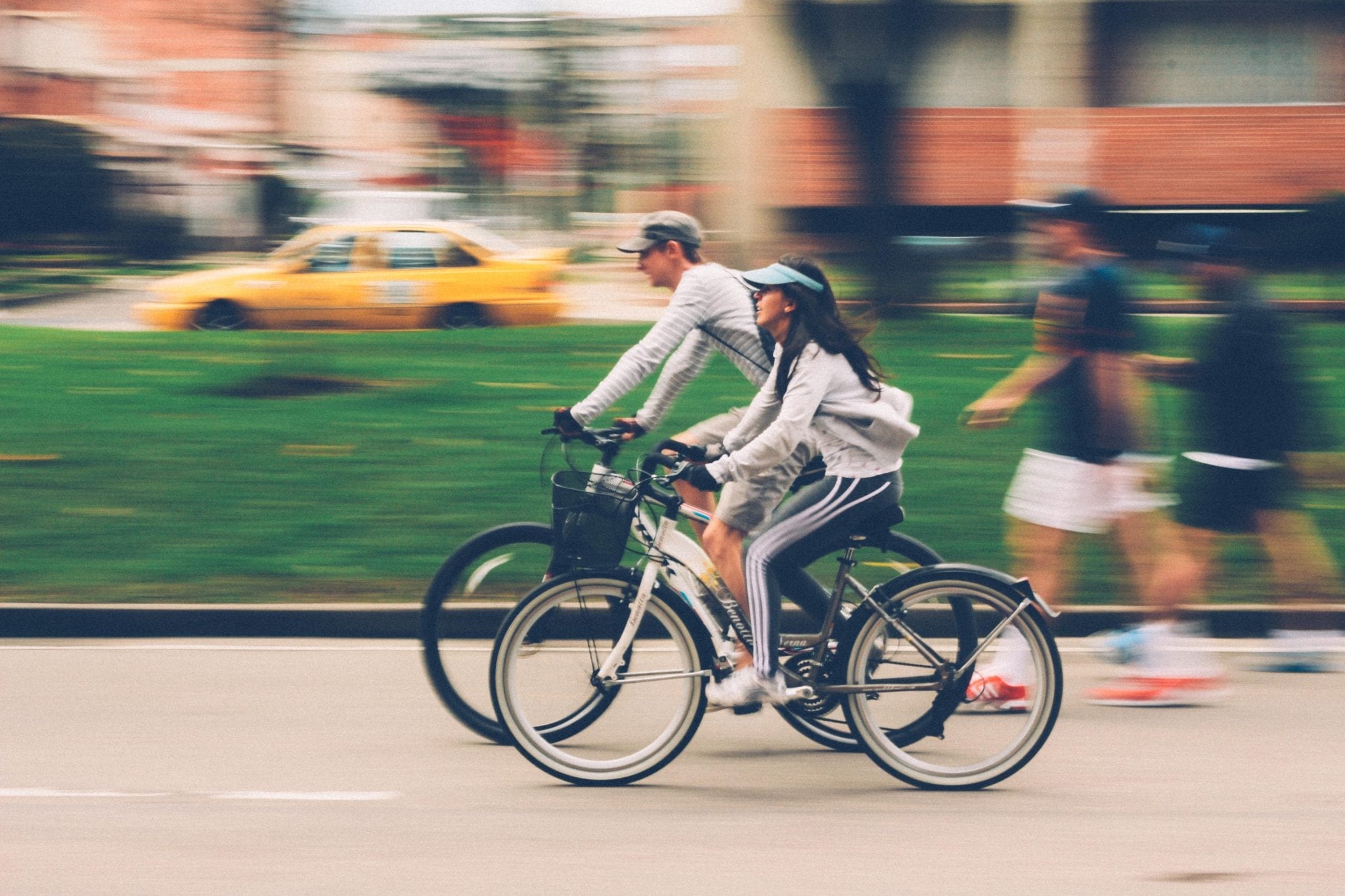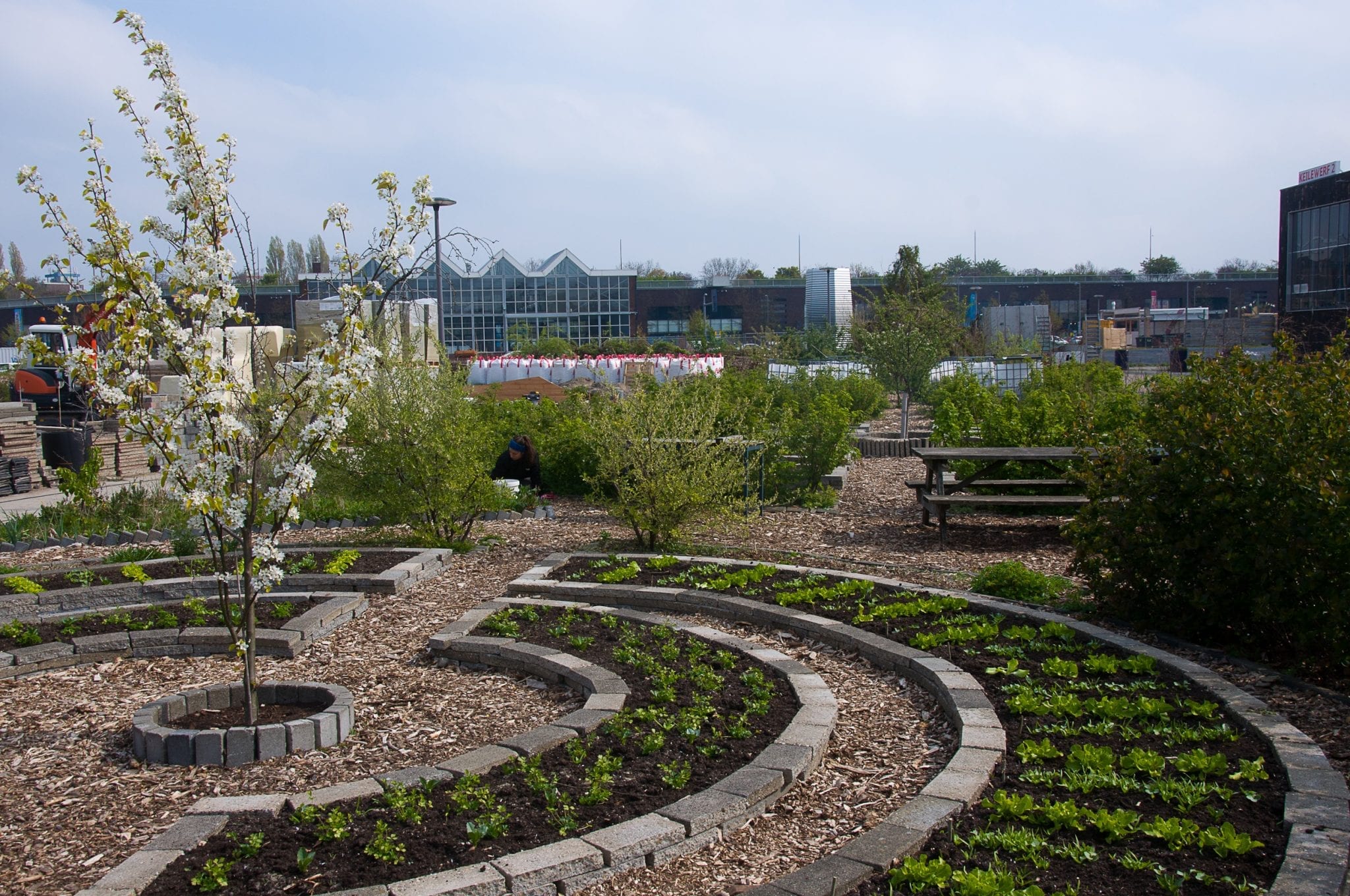A Future Worth Inheriting
Building more sustainable, equitable and healthier lives
Four years ago, the Inter-sectoral Health and Environment Research for InnovaTion project (INHERIT) set out to identify ways of living, moving and consuming that challenge the ‘take, make, consume and
The quest for interventions that protect the environment while promoting health and health equity – the INHERIT ‘triple win’ – has resulted in a body of research work and findings that propound what is required to make a more sustainable, equitable, and healthier future a reality. From delving into the intricacies behind the collaborative work required across all sectors, at all levels of policy-making, to the very determinants and drivers that influence individual behavior and lifestyle changes, INHERIT seeks to ensure that our future is a far cry from its current course.
Drawing from the expertise of its partners and their networks, INHERIT identified 100 promising initiatives around Europe that are helping people to adopt
A closer look at three case studies related to sustainable mobility – Malvik Path, UrbanCyclers, and The Food Garden –
INHERIT Case Studies – A focus on sustainable, active mobility
Malvik Path was developed along a 3 kilometres stretch of scenic, coastal path in Norway from what used to be an abandoned railway. Strategically connecting two residential areas, the path now serves as an open, accessible public space for all, offering new opportunities to utilize green space that promotes social interaction and active lifestyles through walking, running and cycling. The path contributes to health and well-being of its users by encouraging active lifestyles while reducing air pollution and noise levels.
Malvik Path was designed in accordance with
Involving residents throughout the planning and implementation stages was key to the success of Malvik Path, along with garnering support from local policymakers and authorities. By converting an abandoned railway into a practical, recreational path with views many could only dream of, it’s easy to begin imagining what spaces in our own communities could be transformed if the political and citizen willpower is there.
While creating usable spaces can encourage active lifestyles, the UrbanCyclers app offers insights

Furthermore, the app motivates urban residents to cycle more through its gamification of route tracking that translates into a system of points, badges, leader-boards, challenges, and real-world rewards—in essence, building a digital riding community. The app can also be employed with
However, the importance of policymaking to provide and maintain suitable cycling infrastructure, both for transport and leisure, is an underlying factor to determine the successful impact of such digital applications. As strides are taken by the private sector to develop more shared means of mobility, either through bikes or even e-scooters, aims to integrate better, safer cycling paths and routes should be a top priority. One great contribution of tech to driving sustainable mobility is that the real-time data generated on the UrbanCyclers app can assist cities in identifying bottlenecks in the cycling infrastructure that can be used to make improvements in city planning, fostering safer, more sustainable urban mobility.
Combining the INHERIT thematic focuses of active mobility, green space and sustainable diets, The Food Garden (De Voedseltuin) is an urban garden in Rotterdam that provides fresh, organic produce to people living in poor socioeconomic circumstances via the Dutch Food Bank, which supports nearly 7,000 local households.

The Food Garden is a great example of a triple-win intervention, turning what was previously an industrial area into a food haven that offers local unemployed opportunities to volunteer in the garden— gaining new skills, improving their social interactions and networks, and empowering their health and wellbeing with the agency to grow food. The Food Garden pays it forward by cooking for local food shelters with the produce grown and even delivers food to people living in more deprived areas. It also hosts various educational activities including workshops on permaculture and how to grow your own vegetables.
What initially began as an urban garden has grown into a proper food park as part of a wider set of initiatives in Rotterdam to create a healthier and more sustainable city. An eight km path connects The Food Garden to a cycling route and park area, further supporting healthier lifestyles with active mobility and opportunities for green leisure while advancing sustainable, equitable food systems. Merging the work of various sectors, The Food Garden exemplifies what can be achieved through intersectoral collaboration to activate socioeconomically disadvantaged citizens, promote health equity and increase environmental sustainability.
Discover the other INHERIT case studies
Looking to the future
A closer look at a few of the INHERIT triple-win case studies, one can’t help but wonder what a future of better health, greater equity, and environmental sustainability could in fact look like if our society took into consideration these very intersections. By identifying key trends likely to impact our future, INHERIT forecasted possible scenarios of what European societies could look like in 2040 if measures are taken to live within the planetary limits. These scenarios aim to spark citizen discussion and policy dialogue on the necessary interventions needed to build a future worth inheriting.
Citizen Insights
INHERIT Focus group sessions in five countries revealed Europeans found the ‘One for all, all for one scenario’ most appealing due to its focus on supportive communities.
‘My life between realities’ was deemed the most controversial due to the prominent role and influence of technology.
A future for all to inherit
As the INHERIT project wraps up its final year, key resources and findings will be shared that will set a precedent for the uptake of triple-win interventions and incite the political and public action required to bring these future scenarios closer to reality.
Such resources, including reports on the 15 INHERIT triple-win case studies’ implementation and their elements of good practice, will compile all key findings and learning to ensure the creation of triple wins in health, equity, and environmental sustainability. These resources will serve as great reference guides for policymakers, community activists, and civil society organizations to learn the pragmatic approaches to launching similar interventions or scaling current activities.
INHERIT will also provide a top-down catalyst for change through concrete recommendations to policy-makers through a series of policy briefs and an online Policy Toolkit, to assist the decision-making processes to better integrate the triple-win in policies in the most impactful way for citizens and communities.
If everyone on Earth consumed like the average European, we would need 2.8 planets.
World Wildlife Fund, EU Overshoot Day (2019)
Additionally, the University of Exeter will host a dedicated online course for students specific to the findings of INHERIT in November 2019. More information will be available on the INHERIT website.
Lastly, on 10 December, the project will host its final event in Brussels—A Future for All to INHERIT: Taking Action Now—as both a celebration of the work achieved in making strides for better health, a cleaner environment, and greater equity, and as a call to ac- tion to continue the efforts in making a more sustainable world. This forum is open to all who want to shape a better future for all.
Of all the impressive work and research the INHERIT project has accomplished, one message remains clear: all of us need to question the part we can play in challenging traditional patterns of living, moving, and consuming, and accept that we are the agents of change.